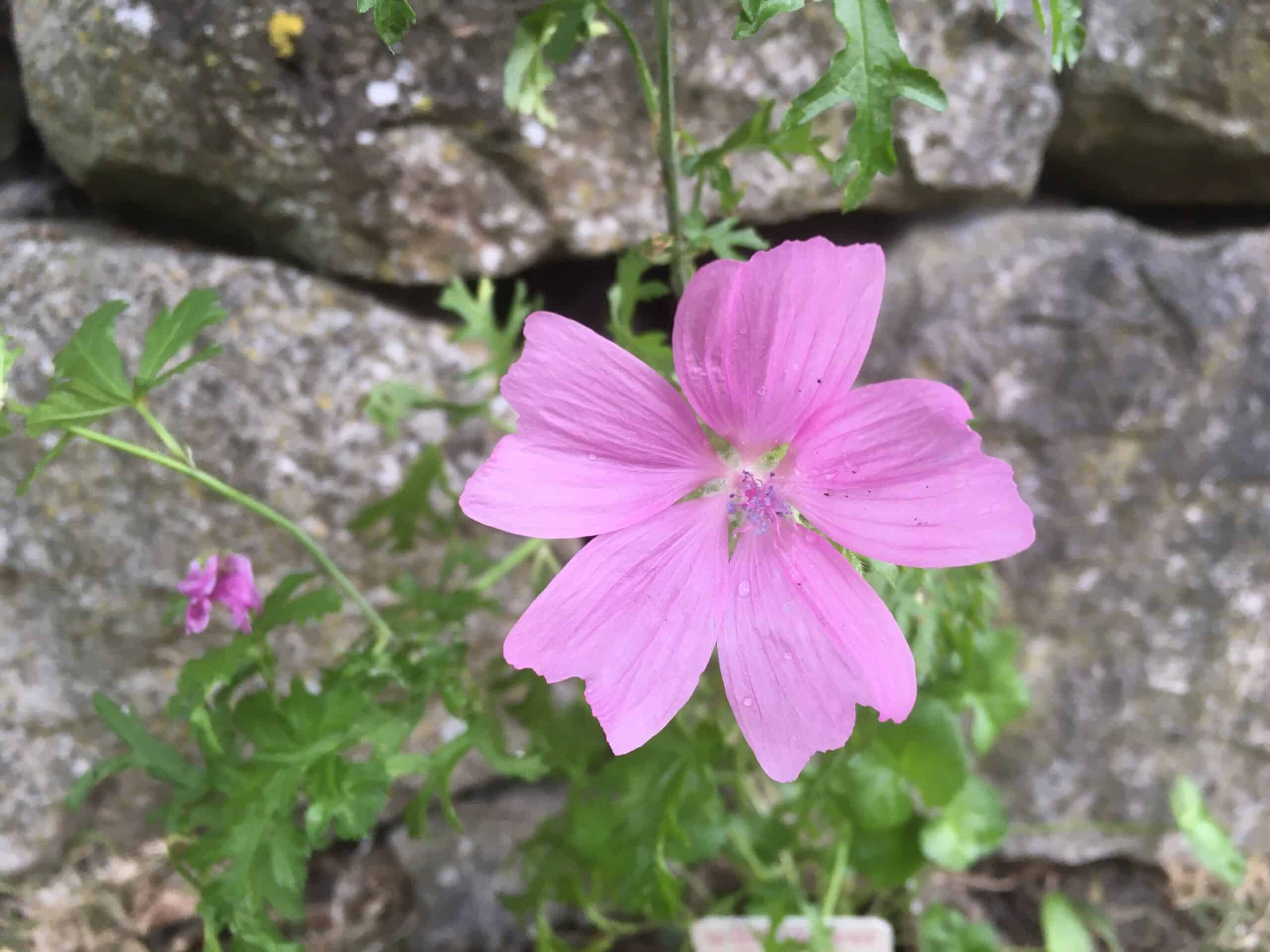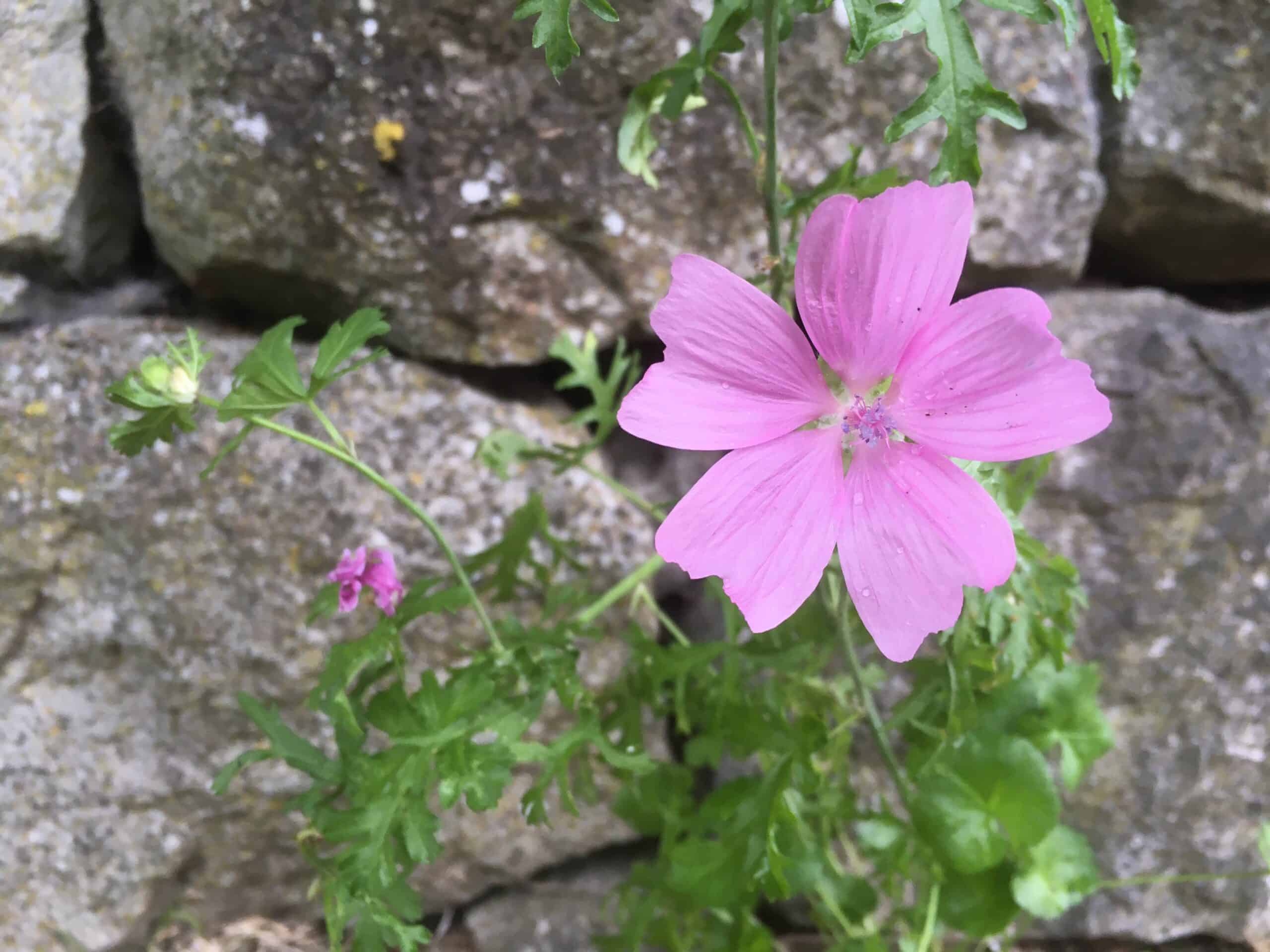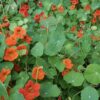Musk Mallow (Malva moschata)
Flowers: July and August. Height: Up to 90cm (36in).
Musk mallow is so-called because it is scented and is said to have been used by the Ancient Greeks to decorate graves, a custom also employed by the Anglo-Saxons. It is also known as St Simeon’s herb. St Simeon is said to have cured his blindness by bathing his eyes in a solution made from the plant which enabled him to recognise the baby Jesus as the Messiah. It was said that if you dug up a mallow root before sunrise on St Simeon’s Day (October 8th), it could be used as an amulet against eye disease, or made into a tincture to cure cataracts or blindness. The word Mallow comes from the Greek malakos meaning ‘soft’ and in Christian symbolism the plant came to represent forgiveness and the softening of the heart.
Medicinal: Used for eye health and as an anti-inflammatory. All parts of the plant were used as a poultice for bruises, inflammations and insect bites or taken internally for coughs, respiratory diseases or inflammation of the digestive and urinary systems.
Culinary: The leaves and flowers were eaten in salads and a tea made from the leaves, flowers or roots.




